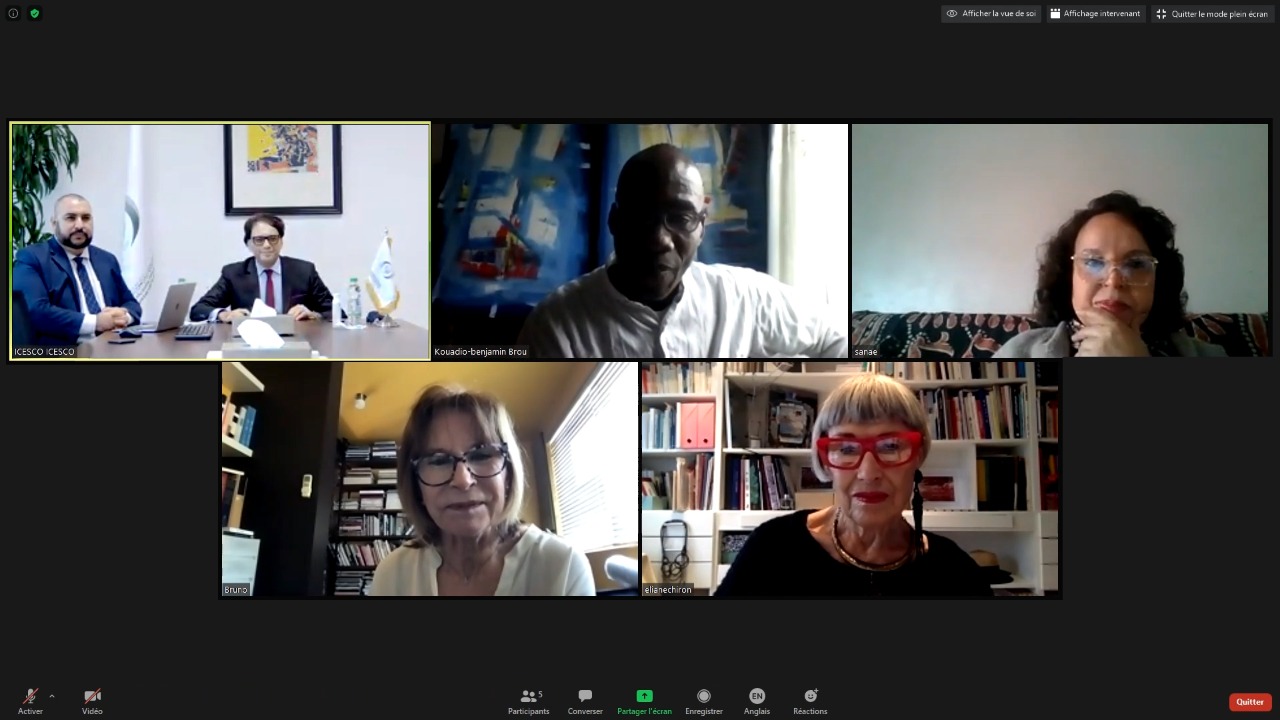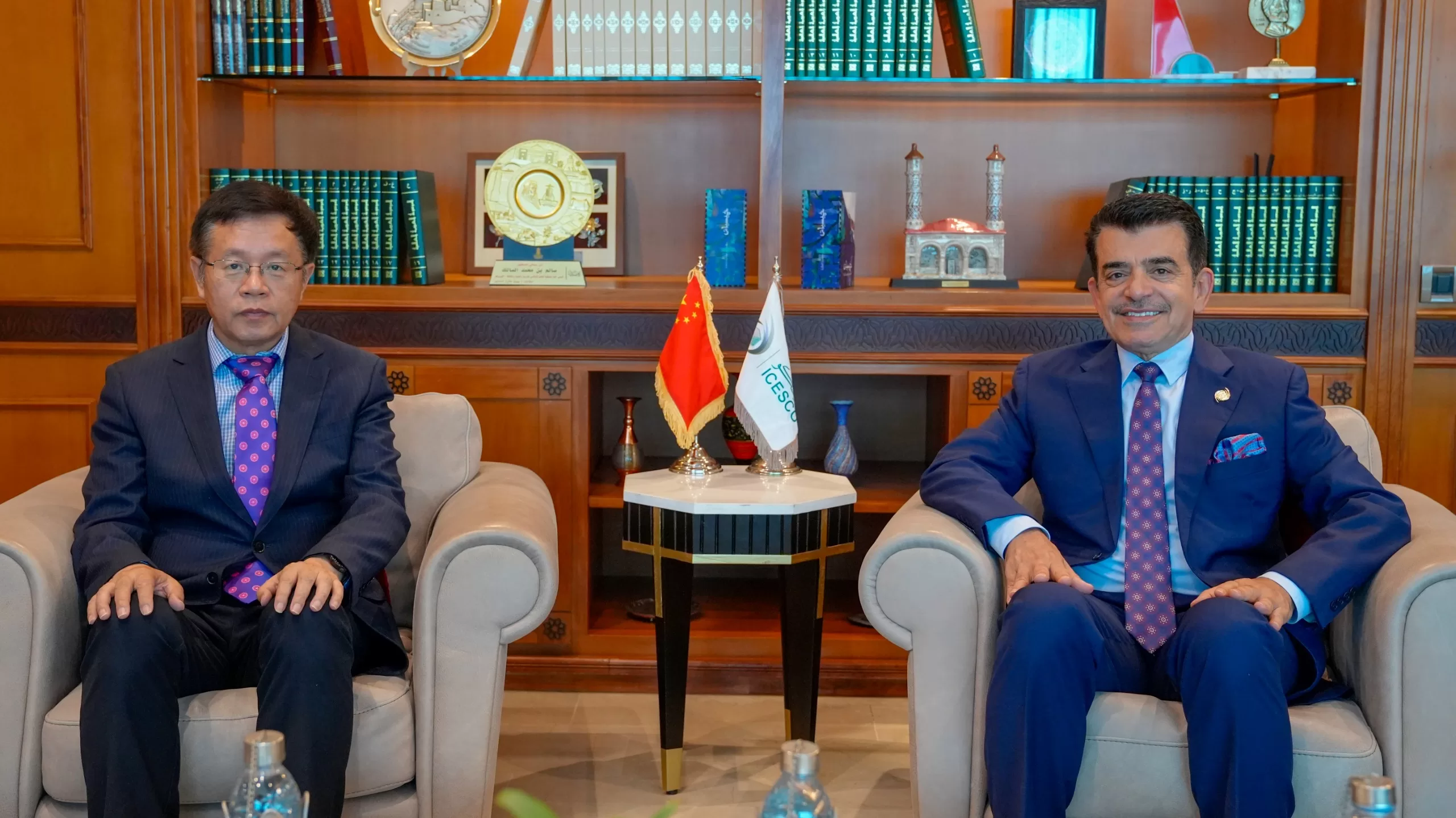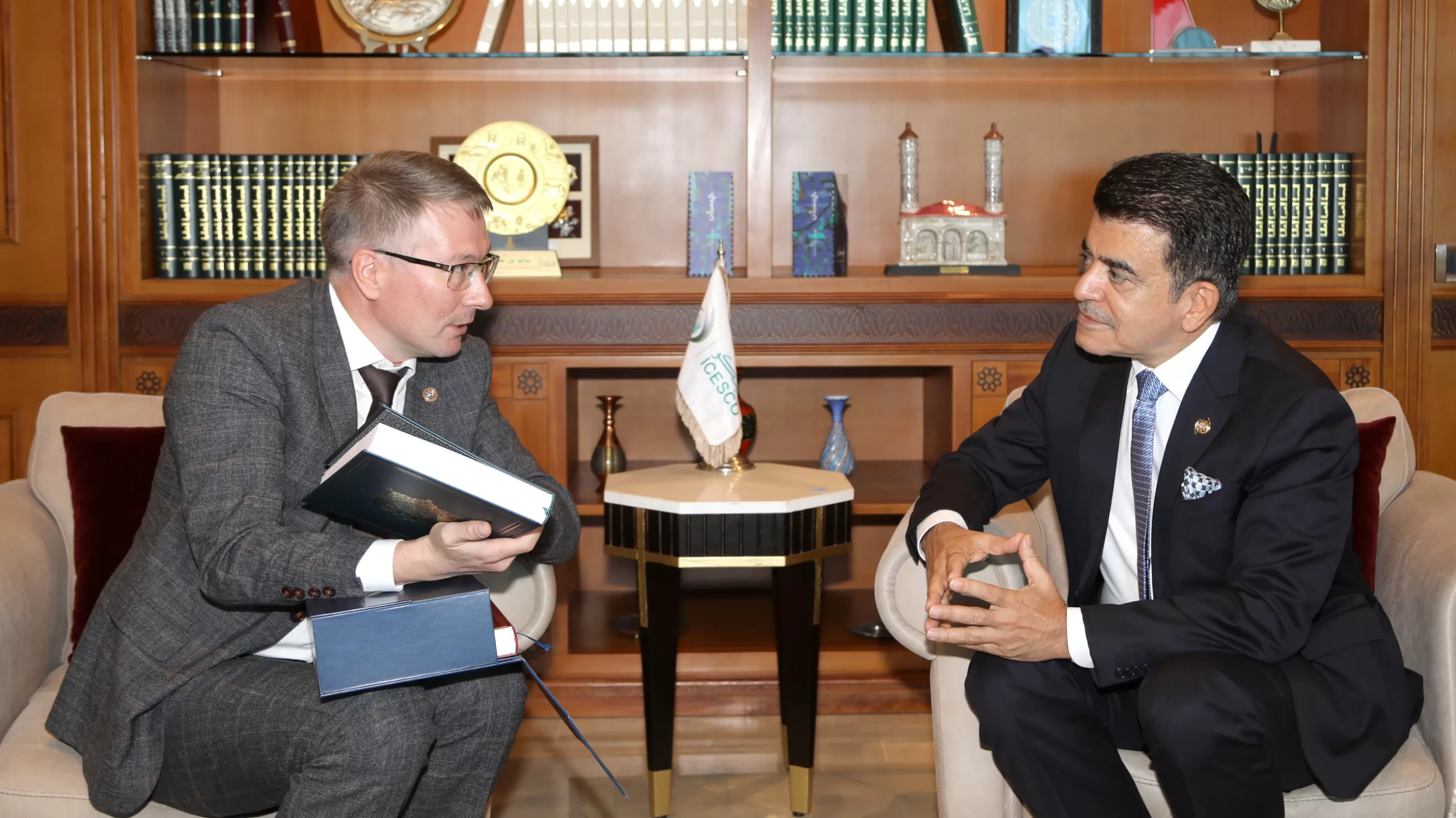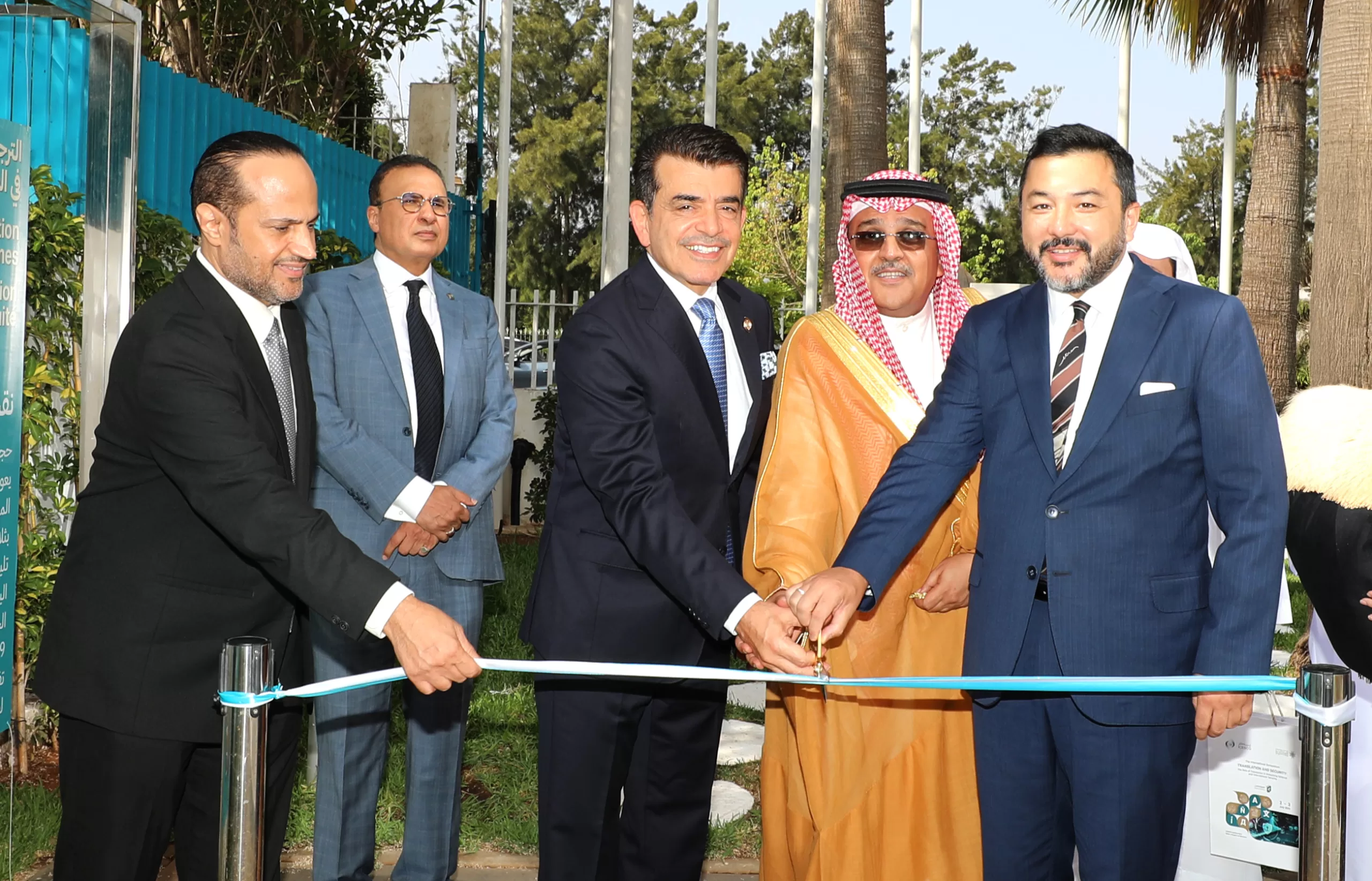
Coordination Meeting on New ICESCO Chairs Project

10 December 2020
The Islamic World Educational, Scientific, and Cultural Organization (ICESCO) held yesterday, a coordination meeting with several professors representing a group of prestigious universities in different countries, to prepare for the launch of the ICESCO Chairs project, under the Organization’s new vision and action strategy.
Dr. Mohamed Zine El Abidine, Director of Culture and Communication Sector, and Mr. Nassim Mhand Omar, Programs Director at the Sector, represented ICESCO in the videoconference.
Dr. Zine El Abidine reviewed the vision, strategy, and the major future activities and programs of the sector. He also indicated that within the framework of “ICESCO’s Roads to the Future,” the Organization adopts a comprehensive and multidimensional approach that involves all groups in the paths of renewal related to thought, art, science, and heritage.
“The new ICESCO chairs in universities will make a major contribution to the existing academic chairs and give a special position for culture through their cultural, academic and research dimensions, particularly in the field of science and scientific research,” he added.
During the meeting, Dr. Eliane Chiron, a distinguished professor at the University of Panthéon-Sorbonne (University of Paris I), referred to the importance of contemporary arts in the development of societies and the influence of innovative artists on their social and cultural environment.
Dr. Fathi Triki, Director of Tunis College for Philosophy, talked about the philosophical references of coexistence.
Dr. Sandra Rey, from the Federal University of Rio Grande do Sul in Brazil, highlighted how to deal with artistic creativity through its interrelation with new creative technologies.
Dr. Benjamin Brow, lecturer in plastic arts and art sciences at the University of Lille in France, emphasized the importance of integrating art in the educational systems to achieve coexistence.
Ms. Sanaa Ghaouati, professor at the Faculty of Arts and Humanities, Ibn Tofail University, indicated the need for establishing research on modern patterns of creativity and the links between them.




